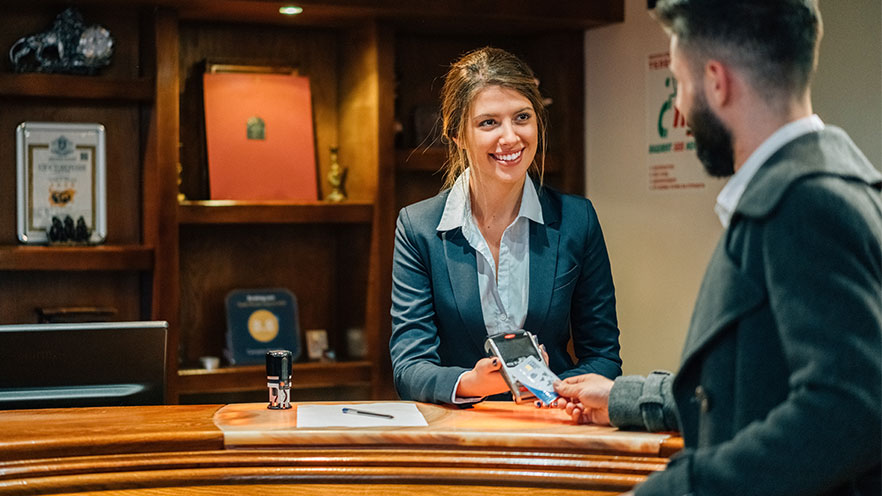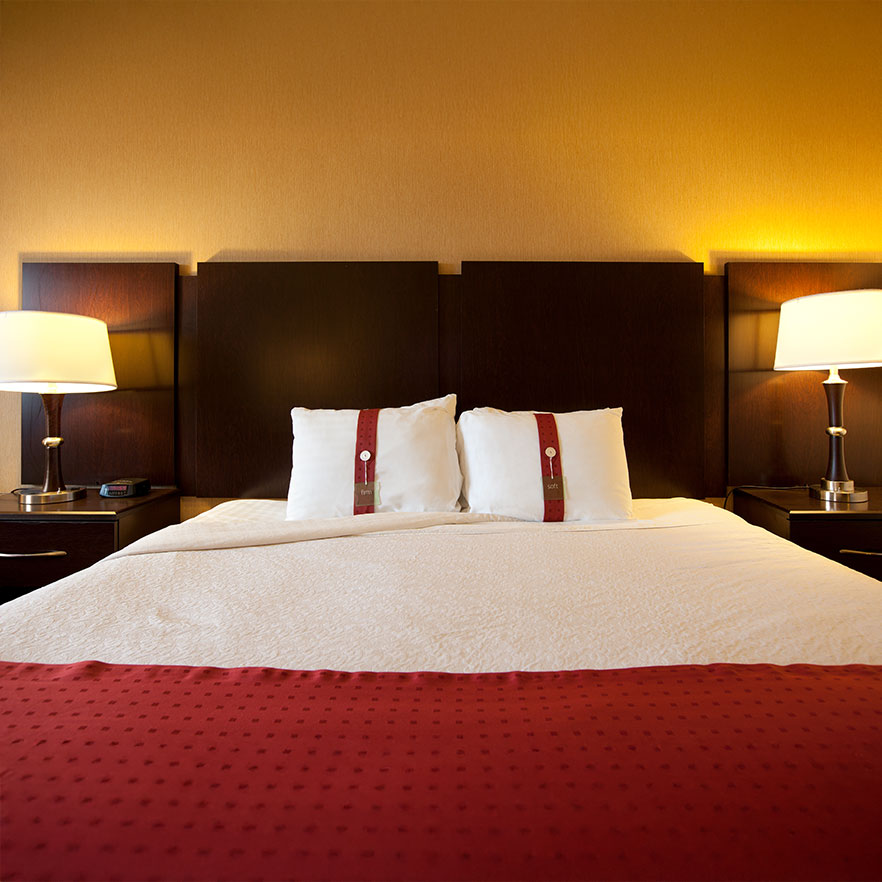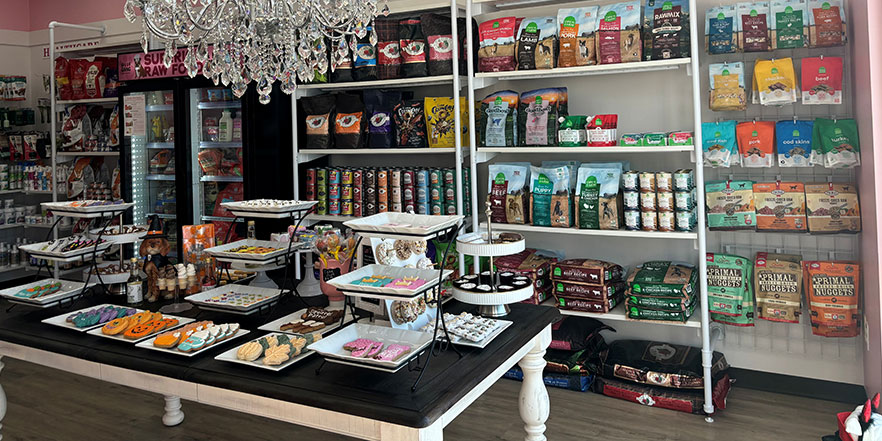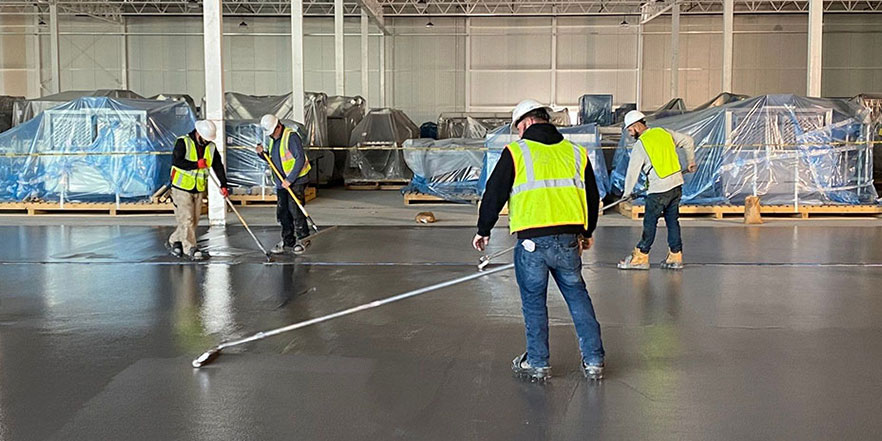Industry
Hotel Loans
SBA loans can be used to fund and grow your hotel
Home » Industries »
See If You Pre-Qualify for an SBA Hotel Loan in 3 Minutes
Get the capital you need to fund your business

Fill in your info:

Ranked a Top 3 SBA franchise lender^
+$600 million franchise loans funded
+$2 billion in SBA loans since 2020
+2,000 SBA loans funded since 2020
Running a hotel isn’t as glamorous as it seems when it comes to managing expenses
Hotel owners face a multitude of expenses, from rising real estate prices to increasing staff wages, Property Improvement Plans (PIP) and the never-ending maintenance. Then there’s the added pressure of keeping up with competitors—whether it’s upgrading your tech systems for seamless online booking or renovating rooms to keep them Instagram-worthy. Today’s guests expect more than just a bed and a shower.
To stay competitive, many hotel owners are looking to expand, build new locations, or renovate existing properties. However, finding affordable financing for these improvements can be a major challenge, especially with cash flow already stretched between seasonal demand and day-to-day operations.

The hospitality industry is growing and financing can help your hotel grow with it
The hospitality industry is expanding, driven by advancements in technology, stronger brand recognition, and a rise in global tourism. Here are some key trends shaping the market:
- The U.S. hospitality market is projected to grow to $299.29 billion by 2029.
- Hotel occupancy rates in the U.S. have surged, driven by a rise in both business and leisure travel, events, and influencer-driven tourism.
The rising demand for travel and evolving guest expectations offer hotels endless growth opportunities, whether through expansion, upgrades, or new services. SBA loans, backed by the U.S. government, provide affordable, flexible financing to help hotel owners improve or grow their businesses.
SBA 7a loans cover needs like working capital, property improvements, or equipment upgrades—perfect for renovating rooms or updating lobbies. For larger projects, like acquiring real estate or building new locations, SBA 504 loans offer long-term, fixed-rate financing without short-term repayment pressure.
First Bank of the Lake specializes in SBA 7a and 504 loans for the hospitality industry. With over $1.1 billion in SBA financing provided, we understand your challenges and can help you secure the funding you need with a warm, professional approach. Whether renovating, expanding, or acquiring a property, we’ll help you find the right SBA loan to grow your business.
Learn more about how to buy a hotel and get a hotel loan
How to Buy a Hotel & Get a Hotel Loan
Reading Time: 6 Minutes
Summary: The hospitality industry offers lucrative opportunities, but success demands strategic planning, financial management, and the right financing. Franchises dominate the thriving $150B U.S. hotel market, projected to grow 5% annually. This guide covers hotel acquisition, financing options like SBA loans, and operational tips, empowering aspiring owners to navigate the competitive landscape and achieve long-term success.
The hospitality industry presents a business rich opportunity for investors and aspiring hotel owners. Success in this competitive area requires more than just a passion for service. It calls for thoughtful preparation, responsible handling of finances, and the right lending solutions. Whether you are looking to purchase your first property, renovate an existing one, or expand your portfolio, understanding the path to acquisition with hotel loans is important.
The U.S. hotel industry is thriving, with 51,158 hotels, marking a 2.8% growth from the previous year. Franchises dominate the market, contributing significantly to the $150 billion hotel franchise industry, which is projected to grow at a 5% CAGR through 2033. Major players like Marriott, Hilton, and Wyndham lead the sector, leveraging economies of scale and brand recognition. Additionally, the U.S. hotel pipeline is robust, with 157,253 rooms under construction in 2024, reflecting a 7% year-over-year increase. This growth underscores the industry’s resilience and its pivotal role in the U.S. economy.
We will walk you through the main steps of buying a hotel and provide a clear overview of the financing options available, including popular government-backed SBA loans. Our goal is to provide the knowledge to turn your vision of hotel ownership into a reality.
How to Buy a Hotel: A Step-by-Step Guide
Purchasing a hotel is a significant undertaking that requires a methodical approach. By following a structured process, you can navigate the complexities of the acquisition with confidence and clarity.
- Define Your Investment Criteria: Start by identifying your goals. Are you seeking consistent cash flow, long-term asset appreciation, or portfolio diversification? Determine the type of hotel property that aligns with your vision, considering factors like size, location, service level, and whether you prefer an independent property or a hotel franchise. Having clear investment criteria will make your search more focused and efficient.
- Conduct Thorough Market Research: Analyze the local market to understand supply and demand dynamics, average occupancy rates, and the competitive landscape. A deep dive into these metrics will help you identify promising opportunities and avoid saturated markets. Engage with commercial hotel brokers who specialize in hospitality to gain access to listings and valuable industry insights.
- Assemble Your Professional Team: You do not have to navigate this process alone. Building a team of trusted experts is a crucial step. This should include a real estate attorney with experience in commercial transactions, a financial advisor or accountant, and a knowledgeable broker. Their expertise will be invaluable during due diligence, negotiation, and closing.
- Perform Comprehensive Due Diligence: Once you identify a potential property, a rigorous due diligence process is your best defense against future problems. Scrutinize the hotel’s financial records, including profit and loss statements, and key performance indicators like Average Daily Rate (ADR) and Revenue Per Available Room (RevPAR). Review guest feedback, maintenance logs, and all existing operational contracts. A physical inspection is also essential to assess the property’s condition and identify any required capital expenditures. If you’re considering a franchise hotel, make sure to ask when the next Property Improvement Plan (PIP) upgrade is scheduled and estimated cost.
- Secure Your Financing: With a solid understanding of the property’s value and potential, you can approach lenders. Prepare a detailed business plan that includes financial projections. Explore various financing options, such as SBA hotel loans, conventional bank hotel loans, and bridge loans to find the best fit for your needs. Partnering with a lender who understands the hospitality sector, like First Bank of the Lake, can streamline your application and improve your chances of approval.
- Craft and Negotiate the Purchase Offer: Guided by your professional team, structure a compelling purchase offer. Your proposal should include the purchase price, key terms, and contingencies, such as securing financing and a satisfactory property inspection. Following the initial offer, you may enter a negotiation phase, which often concludes with a signed Letter of Intent (LOI) or a formal purchase agreement.
- Finalize the Closing and Transition: The closing process involves completing all legal and regulatory paperwork, finalizing your financing, and the official transfer of ownership. After the deal is done, the work of ownership transition begins. Develop a clear plan for managing existing staff, honoring guest reservations, and implementing any planned upgrades or rebranding efforts. Smooth execution during this phase sets the stage for future success.
Tips to Buy a Hotel
Buying a hotel can be a complicated process that requires careful consideration of several critical factors to ensure success.
Regulatory and Licensing Requirements: Navigating local, state, and federal regulations is essential. Compliance with zoning laws, health and safety codes, fire safety standards, ADA accessibility, and liquor licensing is non-negotiable. Overlooking these can result in costly delays, fines, or operational shutdowns. For instance, franchise-specific regulations often impose additional compliance burdens that must be addressed early in the acquisition process.
Market-Specific Risks and Trends: Understanding the local market is vital for long-term profitability. Factors like seasonal tourism fluctuations, reliance on transient visitors, or oversupply in urban areas can significantly impact revenue. Emerging trends, such as eco-friendly certifications or tech-driven guest experiences, are also reshaping the industry. Buyers must evaluate these dynamics to avoid misjudging a property’s viability.
Operational Transition and Management: Post-purchase transitions are often underestimated. Retaining staff, integrating new management systems, and maintaining guest satisfaction during ownership changes are critical. A poorly managed transition can disrupt revenue and damage the hotel’s reputation. Planning for rehiring, retraining, and operational continuity is essential.
Technology and Digital Infrastructure: Modern hotels rely heavily on technology for efficiency and competitiveness. Buyers should assess the property’s existing property management systems (PMS), online booking platforms, and cybersecurity measures. Budgeting for upgrades or digital marketing strategies can be a significant but necessary investment.
Understanding Hotel Loans
Securing financing for a hotel is a critical step in the journey of purchasing, renovating, or expanding a property. Hotel loans are specifically designed to address the unique needs of the hospitality industry, offering tailored solutions for hoteliers at every stage of their business. Understanding the various types of hotel loans and their benefits can help you make informed decisions and achieve your goals.
One of the most popular options for hotel loans is the Small Business Administration (SBA) loan. The SBA offers two key programs: the SBA 7a loan and the SBA 504 loan. These government-backed loans are particularly attractive because they reduce risk for lenders, making them accessible to many hoteliers.
Conventional loans, offered by banks and financial institutions, are another common choice. These hotel loans typically require a strong credit history, a solid business plan, and a significant down payment. They are best suited for experienced hoteliers with a proven track record of success. For those needing quick access to capital, bridge loans provide short-term financing to cover gaps during property acquisition or renovation. While these loans come with higher interest rates, their flexibility and speed make them invaluable for time-sensitive projects.
For larger hotel developments, Commercial Mortgage-Backed Securities (CMBS) loans are a popular option. These loans, pooled with other commercial mortgages and sold to investors, offer competitive interest rates but come with strict terms and limited flexibility. Mezzanine financing is another solution for large-scale projects, combining debt and equity to fill the gap between a senior loan and the total project cost. Though these loans offer higher amounts, they also carry higher interest rates.
Hoteliers looking to upgrade or purchase new equipment can turn to equipment loans, which are secured by the equipment itself. This targeted financing option is cost-effective and helps improve operational efficiency. Each type of hotel loan serves a specific purpose, allowing hoteliers to choose the best fit for their needs.
When applying for a hotel loan, lenders evaluate several factors to determine eligibility. A strong credit score and financial history are required, as is a detailed business plan that includes market analysis, revenue projections, and operational strategies. Collateral, such as the property itself, is often required to secure the loan, and lenders typically favor borrowers with prior experience in the hospitality industry to reduce perceived risk.
Hotel loans provide the capital necessary to achieve a variety of business goals, from acquiring new properties to renovating existing ones. They enable hoteliers to remain competitive by funding upgrades, expanding services, and improving guest experiences. Additionally, hotel loans can be used to refinance existing debt, potentially lowering interest rates and improving cash flow.
However, securing hotel loans is not without challenges. The hospitality industry is highly sensitive to economic fluctuations, making lenders cautious. Seasonal revenue, market competition, and occupancy rates can all impact loan approval. To overcome these hurdles, borrowers must present a robust financial plan and demonstrate a clear strategy for navigating market challenges.
As the hotel industry evolves, so do financing options. Green financing is gaining popularity as more hoteliers prioritize sustainability. These loans incentivize eco-friendly upgrades, such as energy-efficient systems and sustainable building materials. Technology-focused loans are also on the rise, helping hotels invest in digital infrastructure like property management systems and contactless check-in solutions.
Hotel loans are a vital resource for hoteliers looking to grow, innovate, or stabilize their businesses. With options ranging from SBA loans to bridge loans and CMBS loans, there is a solution for every need. However, securing the right hotel loan requires careful planning, a strong financial foundation, and a clear understanding of the market. By leveraging the right hotel loans, hoteliers can unlock new opportunities and ensure long-term success in the competitive hospitality industry.
SBA 7a and 504 Hotel Loans
The SBA 7a loan is known for its versatility. You can use the funds for a wide range of business purposes, including property acquisition, working capital, refinancing debt, or purchasing equipment and inventory. With a maximum loan amount of $5 million and amortization up to 25 years for real estate, the 7a program helps keep monthly payments manageable, making it an excellent choice for first-time hotel buyers.
In contrast, the SBA 504 loan is structured specifically for major fixed-asset purchases, such as buying land, constructing a new building, or undertaking large-scale renovations. The financing is a collaborative effort between a conventional lender (covering at least 50% of the cost), a Certified Development Company (CDC) providing up to 40% through the SBA, and the borrower, who contributes a down payment of 10-20%. This structure provides long-term, fixed-rate financing, offering stability for large growth projects.
Hotel Loans FAQ
1. How flexible are hotel loans?
They are quite flexible. Funds can be used for acquiring existing hotels, building new ones, refinancing debt, funding a Property Improvement Plan (PIP), or accessing working capital.
2. What is the typical down payment for an SBA hotel loan?
Down payments for SBA hotel loans usually range from 10% to 20%, depending on the loan type and your financial situation.
3. What are the repayment terms like?
For loans involving real estate, repayment terms can extend to 25 or even 30 years. This helps lower monthly payments and improve cash flow for your operation. These loans can also finance motels, resorts, and RV parks.
4. What documents are needed for a loan application?
Lenders will typically require a detailed business plan, three years of personal and business tax returns, financial statements, and complete details on the property you intend to purchase.
5. What is a Property Improvement Plan (PIP)?
A Property Improvement Plan (PIP) is a list of mandatory renovations or upgrades required by a hotel brand to ensure the property meets its standards. The right hotel loan can finance these necessary improvements.
6. Is it easier to get a loan for a hotel franchise?
Lenders are often comfortable working with established hotel franchises because they have a proven business model and brand recognition, which can streamline the financing process.
7. Which SBA loan is right for me, the 7a or 504?
The choice between an SBA 7a and an SBA 504 loan depends on your goals. The 7a is ideal for operational flexibility and working capital, while the 504 is better for major asset acquisitions. A knowledgeable lender can help you decide. Using a hotel loan calculator can give you a preliminary estimate of payments, but a specialist will provide the most accurate figures.
How to Buy a Hotel FAQ
1. How long does it take to buy a hotel?
The timeline varies but can take several months. The process length depends on the complexity of the deal, the due diligence period, third-party reports, negotiations, and loan approval times.
2. What are some common pitfalls to avoid?
Underestimating operational and renovation costs is a frequent mistake. Other risks include not assembling a strong advisory team and failing to conduct a thorough property inspection.
3. Why is a business plan so important?
A comprehensive business plan is the foundation of your loan application and your strategy for success. It shows lenders you have a clear vision and the skills to operate the hotel profitably.
4. What are contingencies in a purchase offer?
Contingencies are conditions included in your offer that must be met for the deal to proceed. Common examples include securing financing and the property passing inspection. They are designed to protect you as the buyer.
5. Should I buy a franchise or an independent hotel?
A hotel franchise offers brand support and a built-in customer base, while an independent hotel provides complete creative and operational freedom. Your choice should align with your experience, resources, and long-term goals.
6. What is the exit strategy?
An exit strategy is the plan for the future of the investment. Whether you intend to hold the property long-term, sell it after renovations, or pass it on, having a plan helps guide your decisions from the start.
Your Partner in Hospitality
The journey to hotel ownership is both exciting and challenging. Having an experienced and responsive financial partner by your side can make all the difference. At First Bank of the Lake, we offer more than just tailored hotel loan solutions; we provide steadfast support at every stage of your venture. Our mission is to empower your vision with the guidance and financial tools you need to succeed.
Choosing the right lender is as important as choosing the right property. First Bank of the Lake offers specialized expertise in hospitality financing and a supportive, client-focused approach. We are committed to providing fast, transparent loan processing, guiding you from the initial eligibility assessment to the final closing. Our team can often close SBA hotel loans in just 30–90 days, empowering you to act quickly on opportunities. We provide end-to-end support to make your path to hotel ownership a smooth and successful one.
Real business owners. Real results.
Woof Gang Bakery SBA Loan Case Study
After years in HR, Kasia followed her passion for animals and, with a $345K SBA loan from First Bank of the Lake, quickly launched her Woof Gang Bakery & Grooming franchise — already nearing breakeven just months in.
Tint World SBA Loan Case Study
After losing his wife, a friend, and his life savings, Dan Billings reinvented his life with a Tint World franchise — and with guidance and an SBA loan from First Bank of the Lake, his business is thriving and he’s already eyeing a second location.
Lifetime Green Coatings SBA Loan Case Study
Father and son duo Barry and Parker Norfleet launched six Lifetime Green Coatings franchises with a $400K SBA loan from First Bank of the Lake — quickly setting up operations and nearly breaking even within just three months.
What Our Customers Say
Gave Me the Confidence I Needed
Huge thanks to Tammy and Brandi. Tammy was my first point of contact and gave me the confidence I needed since there isn't a local branch near where I live. Brandi has been answering ALL my questions since and has excellent follow up and has taken great care of me.
— Michele Houston
Genuinely Interested in Helping My Business Succeed
First Bank of the Lake was a tremendous help in securing a 504 small business loan for my company. Every staff member I interacted with was professional, friendly, and genuinely interested in helping my business succeed.
— Don Kamb
Exceptional Service
I cannot say enough positive things about my experience working with Eric as my SBA loan officer. From start to finish, he provided exceptional service and went above and beyond to ensure that every issue we encountered was resolved quickly and efficiently.
— Bryan Crowe


